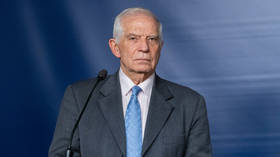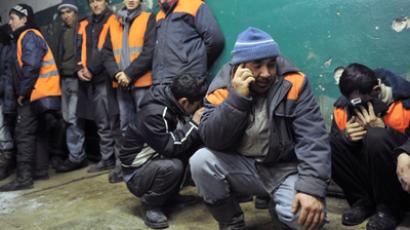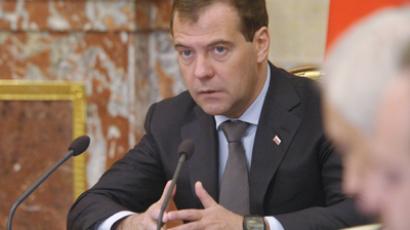‘Like captured Germans in 1944’: Moscow cops convoy column of illegal immigrants
Citizens of the Moscow suburb of Reutov have witnessed a previously-unseen procession of illegal aliens arrested by police at a local market. There were so many arrested that police had to form them into a column resembling POWs during WWII.
Police in Reutov suppressed a looming conflict at a local wholesale and retail market on May 27, arresting over a hundred of men armed with knives, metal rods and traumatic pistols, ready to set upon each other as a result of some kind of a conflict of interest between merchants. Many of the arrested turned out to be living and working in Russia illegally.
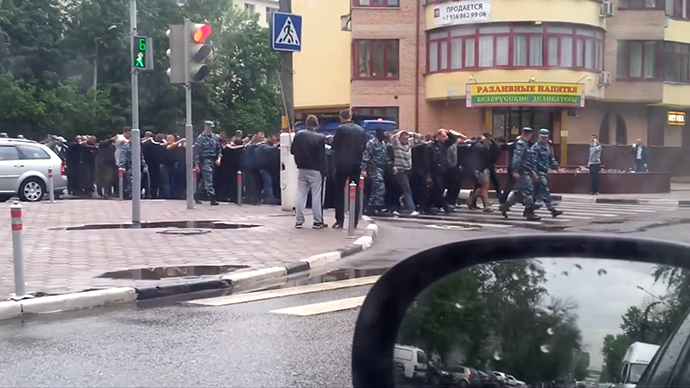
Because the number of detainees exceeded the capacity of local police prison trucks, officers had to convoy them to the police station on foot, demonstrating outstanding escort guard skills.
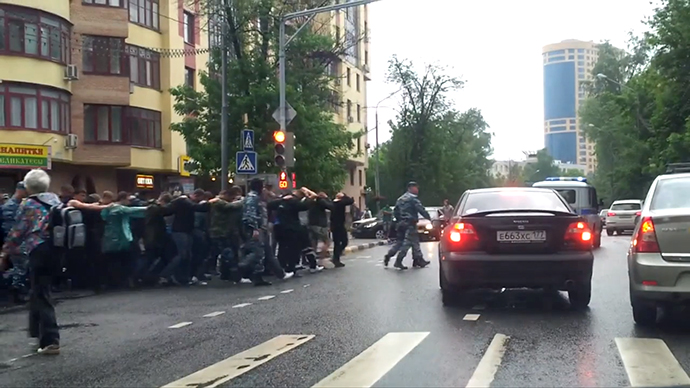
Once an amateur video of the incident made it on to the web, it exploded a bombshell in the Russian segment of the internet.
Young though Russian internet users might be, the likening of the illegal aliens to German POWs being escorted during WWII made it into Top-30 of the Russian Twitter trends.
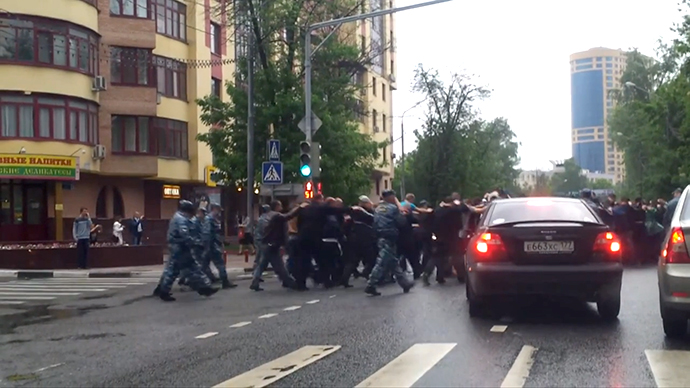
“Prisoner guest workers in Moscow’s Reutov are being convoyed, hands up, faces frightened. This reminds me of German war prisoners,” wrote blogger dakarmos on LiveJournal.
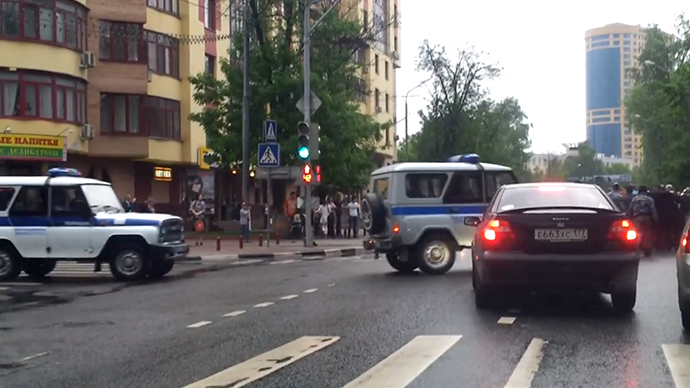
The most renowned event of war prisoners marching through the Soviet capital was the historic ‘Parade of Losers’ (Big Waltz March), that took place in Moscow on July 17, 1944, when 57,000 German POWs marched through central Moscow.
Nearly 70 years ago, that was how the Soviet government showed the citizens of the capital and foreign diplomats residing in Moscow that the Red Army was winning the war. The march of German POWs left an indelible impression in the memory of contemporaries.
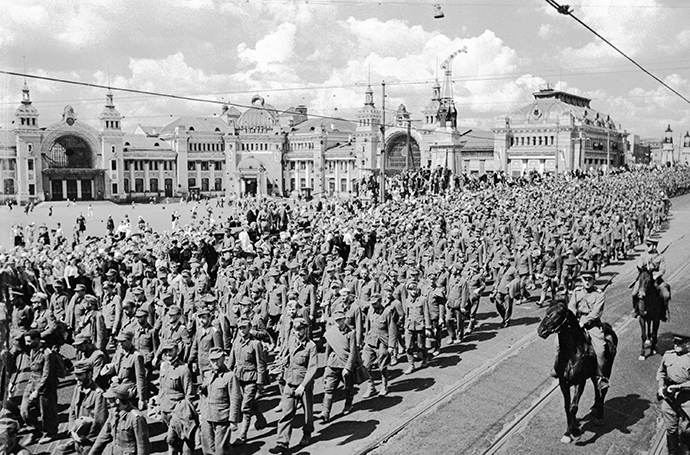
Once the economic situation in Russia began to markedly improve in the 2000s, citizens of neighboring countries began looking for a better life in Russia.
Less than a week before the incident in Reutov, Moscow police conducted an ‘Illegal Alien-2013’ operation, arresting over 600 illegals. But this is only a drop in the ocean, as the Federal Migration Service believes that as many as 3 million illegal immigrants are currently residing in Russia.
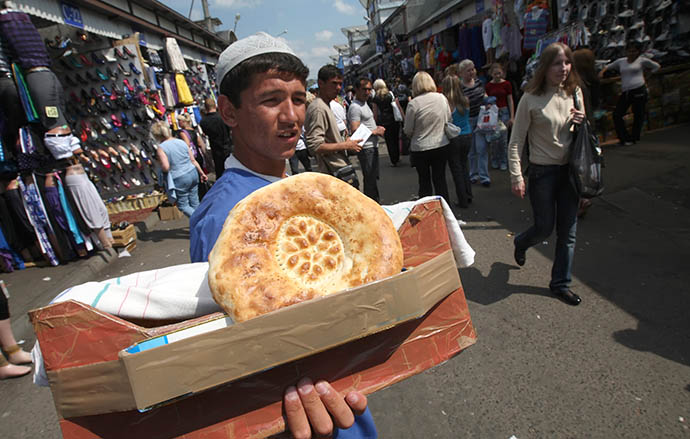
On May 22 Moscow police reported that over the four first months of the 2013 the number of crimes committed by illegal migrants has grown up by 42 per cent, whereas the hard crimes committed by migrants has grown by 72 per cent.
“Just imagine: if not for those migrant crime stats,
Moscow would have the lowest crime rate in whole Russia,”
commented Moscow Police Chief Anatoly Yakunin.
The violation of Russian migration law is subject to both administrative and criminal liability. Those who entered the country legally, but failed to obey migration rules or worked without a special permission face a punishment of up to 5,000 roubles ($US160) or expulsion from the country.
In December 2012, Russia moved to toughen punishment for illegal entry into the country. Under amendments signed by President Vladimir Putin, a foreigner who failed to leave Russia within 30 days after their entry visa expired may be banned from coming to the country for three years. A foreign citizen, who had been barred from entering Russia but still crossed the border, may face a fine of up to 300,000 roubles ($9,500), up to four years of compulsory labor or up to four years in jail.
In the meantime Russia’s Federal Security Service (FSB) has warned that the uncontrollable flow of migrants might threaten national security as the illegal aliens might have not only criminal, but terrorist pasts.
"We have discovered that certain forces within the illegal migration actually conduct subversive and intelligence activities against the Russian Federation," stressed FSB Service One deputy head Aleksandr Roschupkin, speaking at parliamentary hearings in the upper house, the Federation Council.





